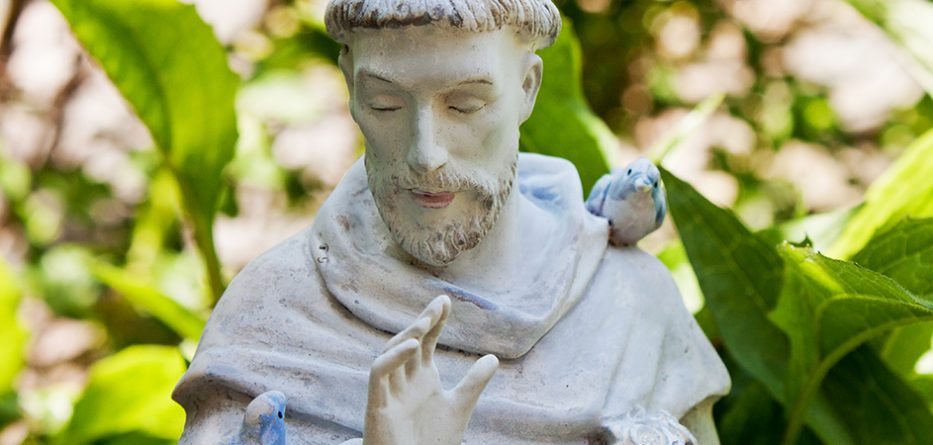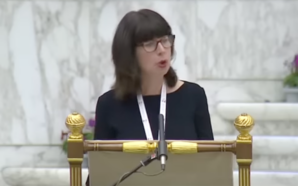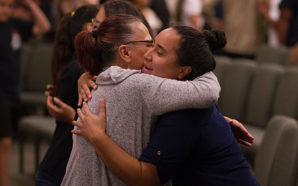This article originally appeared in the Autumn 2019 of the Jesuit Communications Australia’s Australian Catholics Magazine.
The motto of St Francis of Assisi was pax et bonum, meaning ‘peace and goodness’. His life was a journey towards both.
As a rule, the most famous secular figures of history are renowned for gaining, and sometimes losing, wealth.
Not just any wealth – wealth by the countryful – wealth, we might say, by the commonwealth! Pericles of Athens gained an empire, and lost it, and his own life with it. Julius Caesar gained the dictatorship of Rome – at the expense of a million Gaulish and Gothic lives, and their fortunes. Napoleon, Hitler, Stalin – let’s not speak of them.
Saints, on the other hand, while no less bold, are far more benign.
A truly memorable saint may be outrageous, outspoken and even outlandish – yet their effect is always to bring more peace, more love, more reconciliation into the world, inevitably at the expense of their own ‘best interests’.
St Francis of Assisi was like a lightning bolt to history, but he could have been so forgettable. Born in 1181, he was the son of a cloth merchant, who named him Francesco because he had just been on a business trip to France, and probably saw it as a good strategy into the future to have a son named after a profitable market.
At first, young Francesco showed no sign of the special grace that was to set his name ablaze for the ages – he joined not one but two armies, in minor roles, at different times. In 1202, in defence of Assisi, he was defeated and imprisoned – for a year. The second time, in 1205, he kitted himself out as a knight, got no further than a day’s journey, then returned home, having had a vision leading to a much holier mission.
This was the beginning of a conversion that would make his name without doubt the single most recognisable among all the saints apart from those of biblical times. Rather than become yet another creature of historical anonymity, hidden inside a life of lowly military glory or business-like handshaking for commercial ends, Francis promptly disavowed his upbringing in the most dramatic way possible: he disrobed completely in front of his father and the local bishop, vowed to call God His Father from then on, and headed off to the nearest woods to contemplate the Creator and his own calling.
The famous words of God to Francis, ‘Rebuild my Church’, had for Francis both an immediate and a metaphorical meaning. He begged for stones to rebuild the local church of St Damian, but he also conceived of a new path for churchmen and women to go down: to follow the teachings and the footsteps of Christ, in the most literal way possible: to give up earthly riches (Matthew 19:21), to relinquish all possessions (Luke 9:3), and to practise self-denial (Matthew 16:24). In a time when Christianity had become the conventional background culture, Francis re-awakened the principle that radical change was still necessary to the soul.
Francis is known for his love of Nature (‘The Canticle of the Creatures’), but he loved Nature because he loved Jesus; it was entirely logical to him that one should love, respect and honour all that his Father had created. He embraced poverty because Christ, too, had been an itinerant preacher who took nothing with Him. He was able to reconcile the need for penance with an overwhelming sense of the value of his sinful, fellow human beings, because he believed in a God who loved and wanted mercy more than sacrifice.
We might say that St Francis learned to live in harmony with all things natural, because he worshipped the One who was far beyond Nature.
Peter Fleming is the author of ‘The Unexpected Light: Reflections from a Year of Mercy’, and ‘Would I Like Jesus?’. Peter is also a secondary teacher at Loyola Senior High School in the Diocese of Parramatta.
With thanks to Australian Catholics Magazine, where this article originally appeared.








